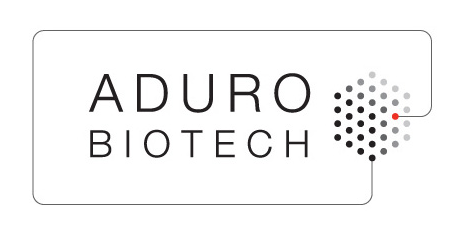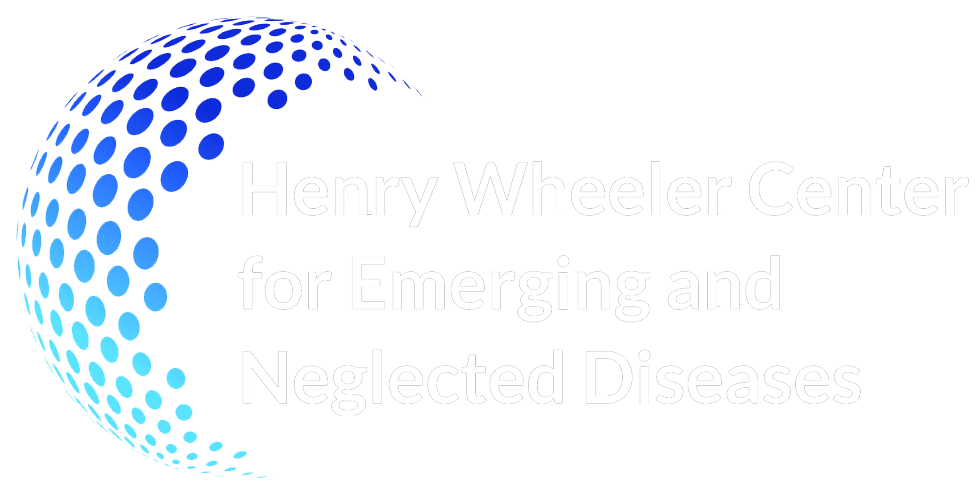Request for Proposals: 2017 Scientific Projects for the Immunotherapeutics and Vaccine Research Initiative (IVRI)
Introduction
The Immunotherapeutics and Vaccine Research Initiative (IVRI) is a new initiative at UC Berkeley (UCB) focused on immunology and vaccinology for the treatment or prophylaxis of cancer, infectious disease, autoimmune disease, and other diseases that may be impacted by immunomodulation. Aduro Biotech is the founding partner for the IVRI, and is sponsoring multiple projects directed towards the discovery and exploration of applications in this field, with individual projects funded by the company for 2 year periods.
In 2016, the first year of IVRI, Aduro funded eight projects from faculty in departments from Molecular and Cell Biology, Bioengineering, and the School of Public Health. With this Request for Proposals (RFP), IVRI is soliciting project ideas from faculty members to be funded under the second, 2-year period of the IVRI-Aduro collaboration.
About the Immunotherapeutics and Vaccine Research Initiative (IVRI)
The IVRI is envisioned as a center for basic research in immunology, pathogenesis, and vaccinology with the potential to profoundly impact the treatment of human disease. The initiative is founded on the principle that mechanistic research investigating the role of the immune system in infectious disease yields new approaches for treating cancer, and conversely, that studies of cancer immunology yield approaches for vaccines and therapies targeting infectious disease. The IVRI will direct and concentrate UCB researchers, their collaborators, and sponsors towards the shared goal of making ground-breaking discoveries, and furthering these discoveries to develop applications in disease prophylaxis and treatment. IVRI will facilitate communication and collaboration among researchers, streamline access to scientific and financial resources, and promote not only the vision, ideas, accomplishments of its scientists, but also the translation of these ideas and findings for the development of new therapies for human diseases. By targeting synergies in the expertise and capabilities of its scientists, and unifying their ingenuity with the objectives of its sponsors, the IVRI seeks to maximize the potential of its UCB researchers and accelerate the pace of discovery and translation.
About Aduro Biotech
Aduro is a pre-revenue biotechnology company located in Berkeley, CA and focused on developing novel immunotherapies and vaccines for oncology and infectious diseases. The company’s current pipeline of immuno-oncology product candidates is derived from two proprietary technology platforms: Live, Attenuated, Double-Deleted Listeria monocytogenes, or LADD, and cyclic dinucleotides, or CDNs. Both of these platforms emerged from studies of the immune activation by infectious agents, but have yielded lead candidates for therapy of cancer, illustrating the founding principle guiding the IVRI. The LADD technology is used as a vaccine vector system in which the attenuated bacteria are engineered to express tumor antigens to stimulate an innate and an adaptive (T-cell) response to cancer. Certain insights into Listeria pathogenesis that influenced the development of Aduro’s LADD technology platform by Aduro scientists came out of Dan Portnoy’s at UCB. The lead LADD product candidate, CRS-207, is currently being developed for use in pancreatic cancer, mesothelioma, and ovarian cancer, in combination with other therapies. LADD technologies are also in early clinical and preclinical development for use in glioblastoma, prostate, and lung cancers. The CDN technology platform comprises synthetic small molecule immune modulators that target and activate Stimulator of Interferon Genes, or STING, receptors that are generally expressed at high levels in immune cells. Once activated, STING receptors prime and enhance the innate immune response by signaling through multiple distinct pathways. These signals activate the expression of a broad profile of cytokines that initiate the development of an effective adaptive immune response that leads to cancer cell destruction. Certain aspects of the CDN technology developed by Aduro were discovered in the labs of Russell Vance, Dan Portnoy and other collaborators at UCB. Aduro’s CDN technologies, including the totally synthetic lead CDN compound ADU-S100 developed by Aduro chemists, are currently in preclinical development. 
Areas of Interest
Area A. Novel approaches to understanding mechanisms, pathways, and/or targets involved in host immunomodulation with potential for development as methods for the prevention or treatment of cancer, infectious diseases or other immune-driven immunopathologies. Proposals in this area seek to discover, identify and/or validate new mechanisms, pathways, or targets that modulate the function or activity of the innate and/or adaptive arms of the immune system. In Area A, proposals to test novel hypotheses that address knowledge gaps in immunomodulation that conceptually may result in transformative/high impact applications to prevent or treat target diseases are strongly encouraged. In addition, Area A proposals may include preclinical or translational studies to validate specific targets involved in immunomodulation for their potential application in immunotherapy or vaccine development. Area B. Enhancements of LADD and CDN technology platforms. Proposals in this area seek to provide new tools or approaches for improving the versatility, antigen-presentation functions, effector functions, cell targeting ability, or other aspects of these platforms. These studies are likely to enhance safety, improve or broaden efficacy, enhance manufacturability, or increase ease of use in research studies for these platforms. In addition, proposals in this area may aim to dissect the mechanistic basis by which LADD or CDN stimulate effective immune responses. Area C. Applications of LADD and CDN technology platforms in infectious diseases or autoimmune diseases. Proposals for new projects to demonstrate the applicability of these platforms, heretofore primarily directed towards oncology, in the treatment or prophylaxis of infectious diseases. These may include the use of new LADD derivatives or CDNs, the application of existing CDNs (e.g., ADU-S100) in an infectious disease model, or the use of new or existing LADD or CDNs in combination with existing or novel vaccine or therapeutic constructs. Area D. Novel targets or development of Antibody-based immunomodulation for the prevention or treatment of cancer, infectious diseases or other immune-driven immunopathologies. Proposals in this area seek to expand the repertoire of antibody-based therapeutics by discovering, identifying and/or validating new mechanisms, pathways, or targets that modulate the function or activity of the immune system.
Project Types
Type 1. Exploratory Projects. Exploratory projects are high risk, high reward endeavors that are intended to test exciting hypotheses in a new area with limited or no preliminary data. These projects break new ground or extend previous findings in a new direction or application. Exploratory projects have a maximum direct cost of $250,000 total for a two year period. Type 2. Established Projects. Established projects are those that seek to build upon hypotheses that have a strong basis of support through substantive preliminary data. They may also be rooted in the demonstrated expertise and experience of the PI in the particular scientific and technical field of the research project. Established projects have a maximum direct cost of $500,000 total for a two year period.
Application Instructions
Applicants should submit their Expressions of Interest and Abstract via this online form or as an e-mail to ivri@berkeley.edu no later than January 20, 2017. Abstracts will be reviewed by Aduro scientist and selected abstracts will be greenlighted for submission of a full proposal. Step 2. Full Proposal. Applicants should follow the following format for submission of each proposal. Please note that for the two month period following submission of your proposal, you must immediately inform Aduro if you also submit the proposed research for funding to another party. Please contact Kimberly Sogi at the IVRI program management office for assistance with this communication at ivri@berkeley.edu.
Limitations
Submission
Applicants with abstracts of interest to Aduro will be notified to submit a full proposal by February 24, 2017. Full proposals should be submitted not later than 11:59 pm, March 31, 2017. Proposals should be submitted as a single pdf document to ivri@berkeley.edu. Please indicate in the body of the submission e-mail: PIs and co-PIs must also complete a Conflict of Interest Statement (California Form 700U form, a partially completed version available here: 700U) and send or deliver a signed, original copy to: CEND/IVRI 444A Li Ka Shing Building Mailstop: 3370 Please note that positive responses to Section 3 of the Conflict of Interest Statement, use of animal models, stem cells or an indication of Human Subject Use may require additional submission steps, including upload of the proposals in the Phoebe system. You will be contacted by Kimberly Sogi from the IVRI program office with specific instructions.
Application Review
Applications will be reviewed, scored, and ranked by committees of UCB faculty within the Areas of Interest, then submitted to Aduro for a final funding decision. The review committee and scoring criteria are described in Appendix I of this RFP.
Project Oversight and Reporting
In addition, Aduro employees may attend group meetings where IVRI-sponsored research is discussed and with the permission of the lead researcher, to better facilitate information sharing and scientific collaboration between UCB and Aduro. Investigators will provide annual written reports, including one interim and one final report, to Aduro. In addition, Aduro may request quarterly conversations with the PI to discuss progress.
